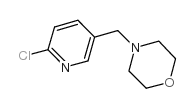70258-18-3
| Name | 2-Chloro-5-chloromethylpyridine |
|---|---|
| Synonyms |
2-chloropyridyl-5-methylene chloride
6-Chlo imidacloprid impurity 2-chloro-5-chloromethyl-pyridine MFCD00125366 Pyridine, 2-chloro-5-(chloromethyl)- 2-Chlor-5-Chlormethylpyridine 2-Chloro-5-chloromethylpyridine 2-Chloro-5-(chloromethyl)pyridine 2-Chloro-5-pyridylMethyl chloride 2-Chloro-5-Chloro-Me 5-chloromethyl-2-chloropyridine 6-chloro-nicotinyl chloride AURORA KA-6694 2,5-DICHLORO-4-METHYL-PYRIDINE 2-CHLORO-5-CHLOROMETHYL PYRIDINE (CCMP),60% DMF |
| Density | 1.3±0.1 g/cm3 |
|---|---|
| Boiling Point | 249.8±25.0 °C at 760 mmHg |
| Melting Point | 37-42 °C(lit.) |
| Molecular Formula | C6H5Cl2N |
| Molecular Weight | 162.017 |
| Flash Point | 129.0±8.8 °C |
| Exact Mass | 160.979904 |
| PSA | 12.89000 |
| LogP | 1.67 |
| Vapour Pressure | 0.0±0.5 mmHg at 25°C |
| Index of Refraction | 1.551 |
| Storage condition | Refrigerator |
Synonym: Section 2 - COMPOSITION, INFORMATION ON INGREDIENTS
Risk Phrases: 34 Section 3 - HAZARDS IDENTIFICATION EMERGENCY OVERVIEW
Causes burns. Potential Health Effects Eye: Causes eye burns. Skin: Causes skin burns. Ingestion: Causes gastrointestinal tract burns. Inhalation: Causes chemical burns to the respiratory tract. Chronic: No information found. Section 4 - FIRST AID MEASURES Eyes: In case of contact, immediately flush eyes with plenty of water for at least 15 minutes. Get medical aid immediately. Skin: In case of contact, immediately flush skin with plenty of water for at least 15 minutes while removing contaminated clothing and shoes. Get medical aid immediately. Wash clothing before reuse. Ingestion: If swallowed, do NOT induce vomiting. Get medical aid immediately. If victim is fully conscious, give a cupful of water. Never give anything by mouth to an unconscious person. Inhalation: If inhaled, remove to fresh air. If not breathing, give artificial respiration. If breathing is difficult, give oxygen. Get medical aid. Notes to Physician: Treat symptomatically and supportively. Section 5 - FIRE FIGHTING MEASURES General Information: As in any fire, wear a self-contained breathing apparatus in pressure-demand, MSHA/NIOSH (approved or equivalent), and full protective gear. Extinguishing Media: Use water spray, dry chemical, carbon dioxide, or chemical foam. Section 6 - ACCIDENTAL RELEASE MEASURES General Information: Use proper personal protective equipment as indicated in Section 8. Spills/Leaks: Vacuum or sweep up material and place into a suitable disposal container. Avoid generating dusty conditions. Provide ventilation. Section 7 - HANDLING and STORAGE Handling: Wash thoroughly after handling. Do not get in eyes, on skin, or on clothing. Do not breathe dust. Use only with adequate ventilation. Storage: Store in a cool, dry place. Store in a tightly closed container. Corrosives area. Section 8 - EXPOSURE CONTROLS, PERSONAL PROTECTION Engineering Controls: Facilities storing or utilizing this material should be equipped with an eyewash facility and a safety shower. Use adequate ventilation to keep airborne concentrations low. Exposure Limits CAS# 70258-18-3: Personal Protective Equipment Eyes: Wear appropriate protective eyeglasses or chemical safety goggles as described by OSHA's eye and face protection regulations in 29 CFR 1910.133 or European Standard EN166. Skin: Wear appropriate protective gloves to prevent skin exposure. Clothing: Wear appropriate protective clothing to prevent skin exposure. Respirators: Follow the OSHA respirator regulations found in 29 CFR 1910.134 or European Standard EN 149. Use a NIOSH/MSHA or European Standard EN 149 approved respirator if exposure limits are exceeded or if irritation or other symptoms are experienced. Section 9 - PHYSICAL AND CHEMICAL PROPERTIES Physical State: Crystals Color: beige Odor: Not available. pH: Not available. Vapor Pressure: Not available. Viscosity: Not available. Boiling Point: Not available. Freezing/Melting Point: 37-42 deg C Autoignition Temperature: Not available. Flash Point: > 230 deg F (> 110.00 deg C) Explosion Limits, lower: Not available. Explosion Limits, upper: Not available. Decomposition Temperature: Solubility in water: Specific Gravity/Density: Molecular Formula: C6H5Cl2N Molecular Weight: 161.9477 Section 10 - STABILITY AND REACTIVITY Chemical Stability: Stable under normal temperatures and pressures. Conditions to Avoid: High temperatures, dust generation. Incompatibilities with Other Materials: Strong oxidizing agents, acids, acid chlorides, acid anhydrides. Hazardous Decomposition Products: Hydrogen chloride, carbon monoxide, oxides of nitrogen, carbon dioxide. Hazardous Polymerization: Has not been reported Section 11 - TOXICOLOGICAL INFORMATION RTECS#: CAS# 70258-18-3 unlisted. LD50/LC50: Not available. Carcinogenicity: 2-Chloro-5-chloromethylpyridine - Not listed by ACGIH, IARC, or NTP. Section 12 - ECOLOGICAL INFORMATION Section 13 - DISPOSAL CONSIDERATIONS Dispose of in a manner consistent with federal, state, and local regulations. Section 14 - TRANSPORT INFORMATION IATA Shipping Name: Corrosive Solid, Acidic, Organic, N.O.S. Hazard Class: 8 UN Number: 3261 Packing Group: III IMO Shipping Name: Corrosive Solid, Acidic, Organic, N.O.S. Hazard Class: 8 UN Number: 3261 Packing Group: III RID/ADR Shipping Name: Corrosive Solid, Acidic, Organic, N.O.S. Hazard Class: 8 UN Number: 3261 Packing group: Section 15 - REGULATORY INFORMATION European/International Regulations European Labeling in Accordance with EC Directives Hazard Symbols: C Risk Phrases: R 34 Causes burns. Safety Phrases: S 25 Avoid contact with eyes. S 36/37/39 Wear suitable protective clothing, gloves and eye/face protection. S 45 In case of accident or if you feel unwell, seek medical advice immediately (show the label where possible). WGK (Water Danger/Protection) CAS# 70258-18-3: No information available. Canada None of the chemicals in this product are listed on the DSL/NDSL list. CAS# 70258-18-3 is not listed on Canada's Ingredient Disclosure List. US FEDERAL TSCA CAS# 70258-18-3 is not listed on the TSCA inventory. It is for research and development use only. SECTION 16 - ADDITIONAL INFORMATION N/A |
| Symbol |


GHS05, GHS07 |
|---|---|
| Signal Word | Danger |
| Hazard Statements | H302-H314 |
| Precautionary Statements | P280-P305 + P351 + P338-P310 |
| Personal Protective Equipment | Eyeshields;Faceshields;full-face particle respirator type N100 (US);Gloves;respirator cartridge type N100 (US);type P1 (EN143) respirator filter;type P3 (EN 143) respirator cartridges |
| Hazard Codes | C:Corrosive |
| Risk Phrases | R34 |
| Safety Phrases | S26-S36/37/39-S45-S25 |
| RIDADR | UN 3261 8/PG 2 |
| WGK Germany | 3 |
| Packaging Group | II |
| Hazard Class | 8.0 |
| HS Code | 2933399010 |
| Precursor 9 | |
|---|---|
| DownStream 10 | |
| HS Code | 2933399090 |
|---|---|
| Summary | 2933399090. other compounds containing an unfused pyridine ring (whether or not hydrogenated) in the structure. VAT:17.0%. Tax rebate rate:13.0%. . MFN tariff:6.5%. General tariff:20.0% |

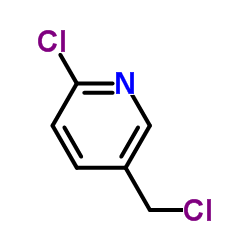

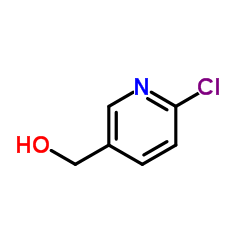
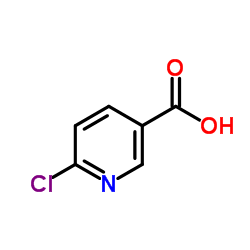
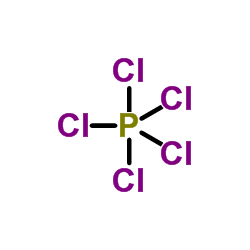
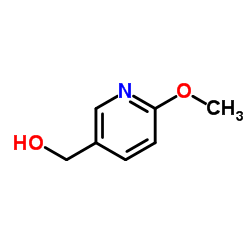
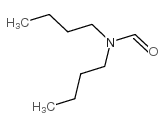

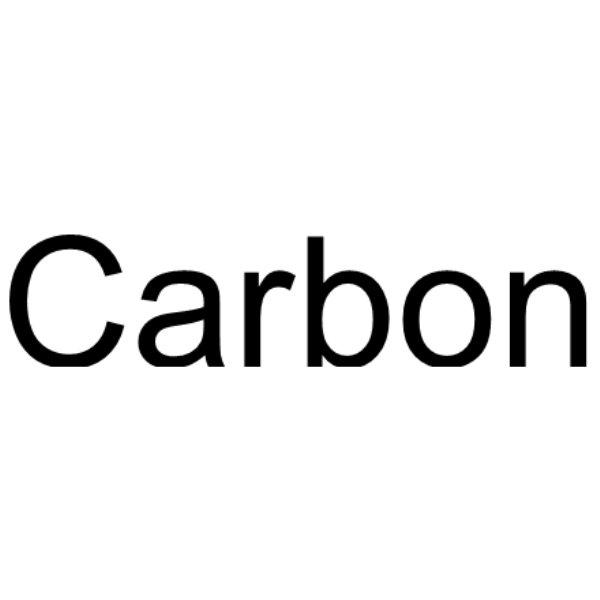

![2-[[(6-CHLORO-3-PYRIDINYL)METHYL]AMINO]-ETHANOL structure](https://image.chemsrc.com/caspic/460/105827-84-7.png)
![2-chloro-5-[[2-(nitromethylidene)pyrrolidin-1-yl]methyl]pyridine structure](https://image.chemsrc.com/caspic/381/141364-94-5.png)
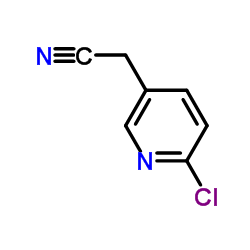
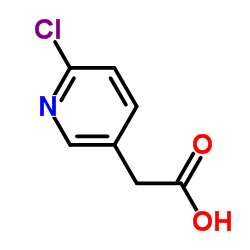
![[(6-chloropyridin-3-yl)methyl]dimethylamine structure](https://image.chemsrc.com/caspic/262/221146-31-2.png)
![2-N,N-dimethylamino-5-[(N,N-dimethylamino)methyl]pyridine structure](https://image.chemsrc.com/caspic/210/1322622-11-6.png)


